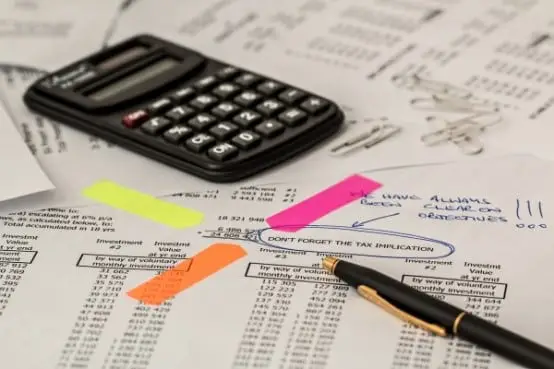If you don’t plan in advance, then the process can get very tedious and painful. Having the necessary documents and data pre-organized is necessary, or else you will experience a lot of trouble when calculating your taxes. What’s worse is that you may even end up paying more if you don’t acquaint yourself with the best tax tips for the new decade.
Here are the top tax tips for 2020 that business owners should know.
Is Your Business Eligible for Tax Concessions?
Small business owners are entitled to a 20 percent deduction on their business income. However, this deduction is not allowed in some cases. Therefore, you will have to ensure that your small business qualifies for this concession.
You are more likely to be eligible for this deduction if you pay the tax on your own rather than through your business itself.
Therefore, it may be a very good idea to convert your business to a different entity.
You should talk to a tax specialist to understand the entity that is right for your business from a tax perspective. The expert will also inform you of all possible ramifications.
Equipment Deductions
If your business has purchased new equipment and put it to use before the year end, then you may be eligible to a tax deduction that can run up to a million dollars.
Revenue and Expense Forecast
Do you expect your revenue to be substantially higher or lower during the next year? If yes, then you can shift your business to a lower tax bracket.
Charitable Contributions
To avail tax concessions for your business, you should think about charitable donations. Such contributions can bring many advantages to your business.
First, you are discharging your social responsibility and creating a terrific image for your business. Consumers and other entities increasingly want to do business with those organizations that are serious about contributing to social and charitable causes. Charitable contributions can work wonders for your brand and increase your customer base.
Secondly, from a tax point of view, you can benefit from a considerable deduction. Make sure to collect the receipt from the charity you are donating to. There are also other matters to take care of if you want your charitable contribution to count as a deduction.
The charitable cause can be something as simple as a food drive or clothing campaign.
Make Your Tax Plan
You should make preparations in advance for paying your taxes so that it does not interrupt your cash flow. You should set aside cash each month to pay tax to the IRS. You can even think of getting a line of credit to ensure that there are no disruptions to the financial health of your business.
You should hold a discussion with your accountant about the best approach. Ask your accountant if it is better to make quarterly payments or to pay the full amount in one go during April.
Planning in advance is also necessary to avoid the wild scramble towards the end. A disorderly rush at the eleventh hour will only increase your stress levels and won’t accomplish anything. It will also maximize the chances of a mistake that can possibly incur a huge penalty.
Unfortunately, many business owners keep putting off tax till the very end owing to their busy schedules. Don’t let this happen to you.
Penalty Relief
It is possible to incur an IRS penalty, despite making the most scrupulous efforts. However, the good news is that you may qualify for a penalty relief.
If you have failed to pay on time or if you could not file your tax returns, then you may be able to avail penalty relief. There are certain individuals who can enjoy extended penalty relief depending on their scenario. They may be those who made an effort to fulfill legal requirements but could not pay on time owing to circumstances beyond their control.
Those who resolved the issue specified by the penalty notice may also be considered for penalty relief.
Keep in mind that even if you belong to one of the above-mentioned categories, penalty relief is not guaranteed.
In short, there is a chance that you can still get your money back if you made an honest mistake or were unable to discharge your responsibilities due to circumstances beyond your control.
Think Before Disposing Equipment
In case you are planning to dispose of old equipment, then you should investigate the tax consequences of this decision. If you sell the equipment, the transaction will be counted as a capital loss. If you simply abandon your old property, it will be considered an ordinary loss. The tax implications for these two types of transactions may be very different. Find out which one will offer you with maximum benefit.
Ordinary losses are fully deductible. Therefore, you should check the classification of your property under Section 1231 to understand how to dispose of your old property.
Keep Track of Carryovers
You may not have used the full amount of your credit or deduction during the tax year. Hence, it’s possible to carry over the remainder to the next tax year.
Amounts that can be treated in this way include charitable contributions, home office deductions, net operating losses, and capital losses.
Make sure that you avail the remaining amounts to get the full tax benefit that you are entitled to.
Family Members as Employees
Try to look for family members who can help you out with your business. For instance, if you have a lawncare business, then you should consider hiring a teenage relative who can mow the lawn. You will be able to avail tax savings due to their services.
Hiring family members will allow you to deduct reasonable compensation for their services. It will thus reduce your taxable income by the amount of their remuneration.
You will also not need to pay taxes like the FUTA or the FICA when hiring your relatives.
Business Equipment Benefits
Under section 179, small business owners may treat business equipment as an expense during the year when it was bought. The upper limit that you may deduct in this manner is $500,000. You can, therefore, avoid tracking depreciation this way.
There is a wide range of property and equipment that comes under the heading of business equipment. This can include anything necessary to run the business like computer items, office furniture, industrial grade equipment, and much more.
You can leverage the Section 179 calculator to assess how much you will be saving. The calculator makes use of the lumpsum method. You should bear in mind that Section 179 is not automatically applicable. To should select it by filling out form 4562.
With the Section 179 calculator, business owners across a wide spectrum of the industry can get instant estimates about the amounts that they are permitted to deduct during the tax year. In order to avail the tax write-off, a lot of business owners resort to financing equipment.
Car Expenses
You can also include your car expenses to further reduce your taxable business income. However, you must carefully ascertain what percentage of your car expenses you are allowed to include as business expenses under IRS regulations.
You should calculate the percentage of time that you use your car for business. You can then use this percentage to compute the business expenses from the total car expenses.
The total car expenses may include costs like repairs, gas and insurance.
You can avail two kinds of deductions. You can go for your total car expenses or you can opt for the standard mileage rate of the IRS. Find out which approach will maximize your car expenses for business.
Home Office Deductions
Many small business owners set up their office at their own residence. However, some of them are unaware that they are allowed to deduct expenses incurred on their home office.
Expenses allowed under this category include utilities, internet service bill, repairs, mortgage interest payments and insurance.
As you may have expected, you will have to allocate a part of the total cost as your business expense.
An easy way to accomplish this is to use a tax software.
Whether you are a home owner or a renter, you can benefit from your home office deduction.
Retirement Contributions
If you are self-employed, then you can bring down your taxable income by paying more into your retirement account. Any deposit that you make on your traditional retirement account will not be taxed till you take out the money.
If you are a small business owner below the age of 50, then you can contribute $5,500 into the Roth or traditional IRA account. If you are above the age of 50, you can then contribute a maximum of $6,500 towards your retirement account each year.
You should consult your financial advisor for the best approach. The advisor will be able to suggest a maneuver that will save the maximum amount possible on tax.
Collect and Safeguard All of Your Receipts
Receipts serve as proof of payment for all the amounts that you have paid through your business during the year. Several of the receipts that you collect may be for goods and services that you are allowed to deduct from your taxable income.
Depending on the kind of business that you are running, you may be permitted to make specific deductions. There are certain deductions that are applicable universally across all types of businesses.
Keeping receipts may be easier said than done. Keeping them for a full year requires a certain level of care. Receipts are easily lost or misplaced.
If handling all of your receipts sounds bothersome, then you don’t have to worry because you now have the 1tabreceipts software.
You can use this program to store images of your receipts. You can also import electronic invoices that you obtained via email. The application makes use of artificial intelligence and machine learning to extract all line items. You can even read off amounts from double-sided receipts using this software.
You can now save electronic copies of all your receipts and never worry about losing them. It is now easier than ever to retain proof of deductions made to taxable income.
Thankfully, this program can easily integrate with all kinds of tax software.
Tax Filing Software
Many small business owners know that they can cut down on tax calculation headaches using tax filing software. However, these nifty programs can allow even experienced entrepreneurs to save money on taxes.
Using programs like H&R Block, TurboTax and TaxSlayer, you can prepare your tax returns and even file them online. You can also keep backup copies of the tax return.
Reimbursements are guaranteed for any fees or penalties that you incur during the use of these programs. These programs therefore ensure that accuracy of your tax return and protection in case something is amiss.
With tax software, getting through all kinds of tax obstacles is greatly simplified.
Peruse IRS Regulations for Small Businesses
You should make it a habit to read in meticulous detail all the intricacies of IRS tax rules for small business. A knowledge of tax rules will give you a good idea of the areas where your business can make tax savings.
Follow All Deadlines
There are myriads of tax credit and deduction forms that you need to file by the specified deadline if you want to benefit from them. In addition, there are also ancillary forms for these filings that have their own deadlines that are different from those on the form itself.
You should therefore make a list of all important forms and then jot down the deadlines of these forms as well as those on the ancillary forms. Mention all of these deadlines in your calendar and make sure that you fulfill them on time.
Following the best tax tips of 2019 as mentioned in this guide is your first step towards high savings on taxes. You should consult your tax expert and financial advisor for more information.
Chris Giorgio is the President of Fully Accountable. Fully Accountable is an outsourced accounting firm specializing in eCommerce and digital businesses. Chris has served as a CPA, CFO and has over 14 years of experience in the accounting and finance industry. Chris has dedicated his career towards helping entrepreneurs and high-level business owners achieve greater profitability through specialized outsource accounting functions.





